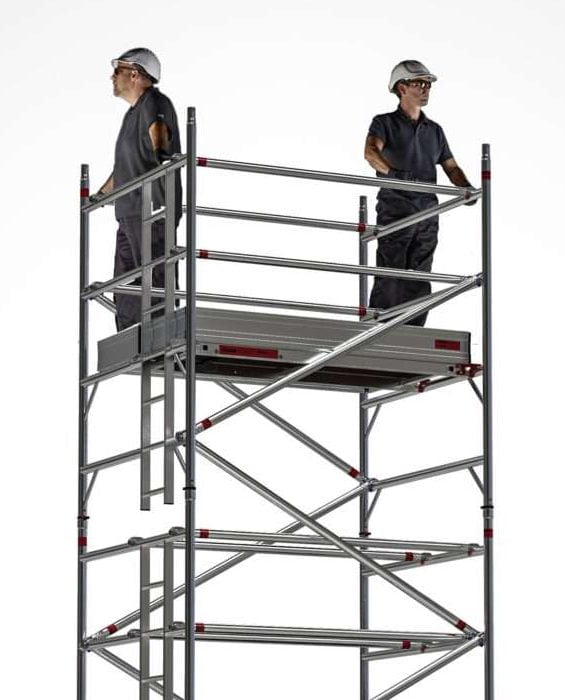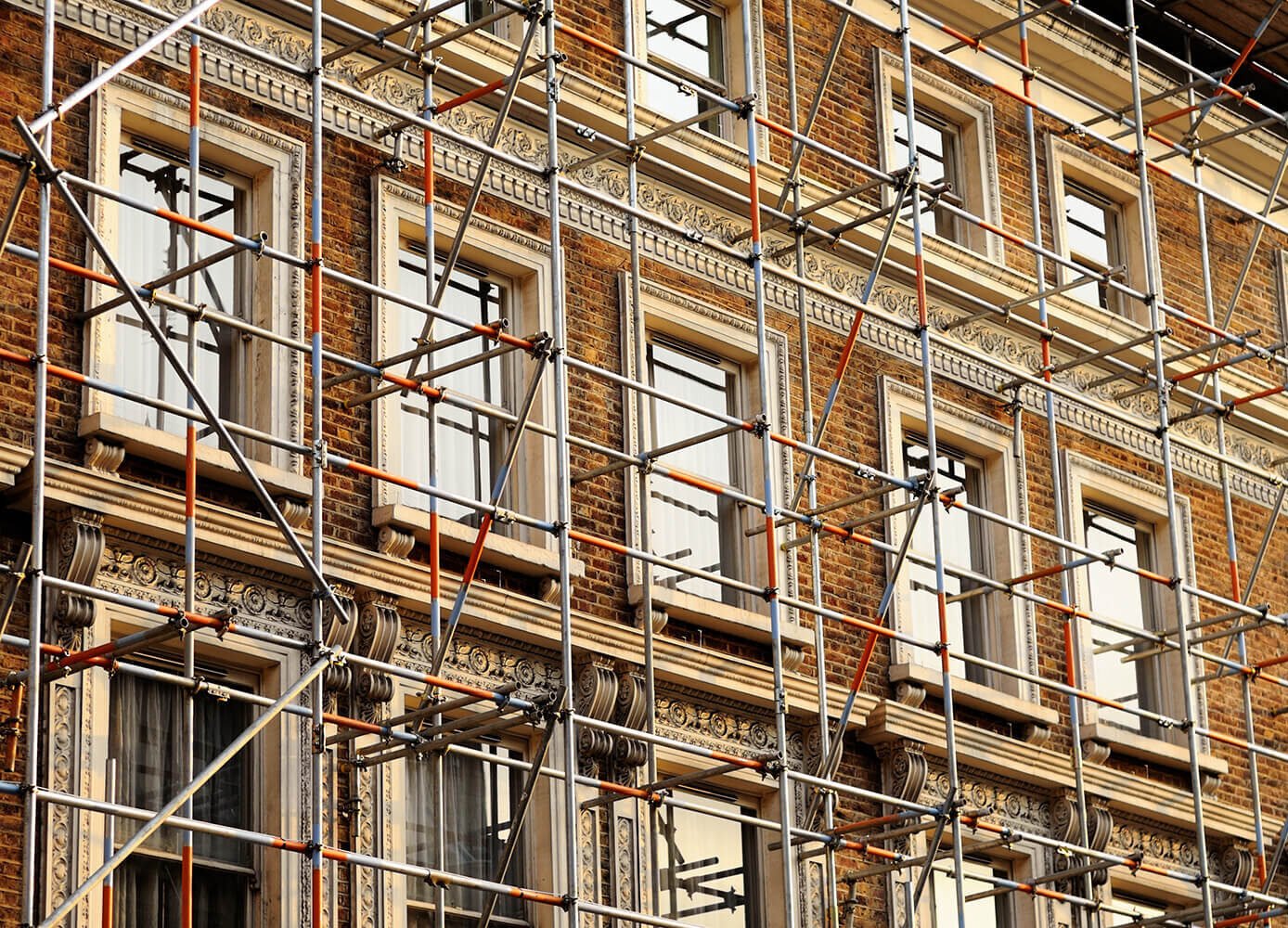Exploring the Different Kinds Of Scaffolding Utilized in Construction Jobs
The building market depends heavily on numerous types of scaffolding to fulfill particular project requirements, each offering unique advantages and applications. Traditional structure scaffolding supplies a tough structure for general tasks, while suspended scaffolding is essential for deal with skyscraper frameworks. Various other alternatives, such as system and rolling scaffolding, satisfy efficiency and mobility, specifically. Moreover, the cantilever alternative shows very useful in urban environments where area is constrained. Recognizing the nuances of these scaffolding kinds is essential for maximizing safety and security and efficiency on building websites, prompting a closer assessment of their special features and applications.

Standard Framework Scaffolding
Conventional framework scaffolding is one of the most commonly made use of approaches in the building sector because of its robustness and versatility. This system includes horizontal and vertical structures that are assembled to produce a steady system for employees and products. The major elements include upright posts, horizontal journals, and angled braces, which with each other give a solid framework that can sustain considerable lots.
Among the vital benefits of standard structure scaffolding is its flexibility to various building projects, varying from residential structures to huge business structures. The modular design permits easy setting up and disassembly, making it effective for both long-term and temporary jobs. Furthermore, the system can be customized in elevation and width, accommodating various building layouts and site conditions.
Security is extremely important in scaffolding applications, and traditional framework systems are equipped with guardrails and toe boards to stop falls and make certain worker security. In addition, regular assessments and adherence to safety and security laws are critical in preserving the integrity of the scaffold. Generally, standard framework scaffolding continues to be a basic option in the building and construction market, giving a trusted platform for labor and enhancing overall job effectiveness

Suspended Scaffolding
Suspended scaffolding supplies an unique service for construction projects that require accessibility to raised surfaces, especially in scenarios where standard frame scaffolding may be not practical. This kind of scaffolding is typically put on hold from the roof or top degrees of a structure, utilizing a system of systems, ropes, and wheels to develop a working room that can be adapted to various heights.
One of the key benefits of put on hold scaffolding is its flexibility. It can be easily rearranged or reduced to fit modifications in construction needs, making it ideal for jobs such as window installation, façade job, and maintenance on skyscraper structures. Furthermore, the very little footprint of suspended scaffolding enables better use ground area in metropolitan environments, where space is usually minimal.
Safety and security is a critical consideration in the usage of suspended scaffolding. In general, suspended scaffolding gives a effective and efficient solution for accessing hard-to-reach locations in different construction situations, enhancing both performance and safety and security on website.
System Scaffolding
System scaffolding, commonly considered a modern-day remedy in the scaffolding market, contains pre-engineered elements that can be have a peek at these guys swiftly assembled and adjusted for numerous building projects. Scaffolding. This kind of scaffolding is identified by its modular layout, which enables versatility and efficiency on job sites, accommodating different elevations and architectural needs
Typically made from high-strength steel or light weight aluminum, system scaffolding uses improved sturdiness and security. The parts include vertical blog posts, straight journals, and diagonal dental braces, which adjoin safely, making certain a durable framework. The style typically includes standard fittings, simplifying setting up and disassembly procedures, consequently reducing labor time and expenses.

Rolling Scaffolding
Moving scaffolding is a versatile option to typical fixed scaffolding, developed for mobility and simplicity of use on construction websites. click here to find out more This kind of scaffolding includes a system supported by structures with wheels, permitting workers to conveniently transfer it as needed. The wheelchair attribute substantially improves productivity, as it reduces downtime related to taking apart and constructing taken care of scaffolding.
Typically constructed from light-weight materials such as aluminum or steel, rolling scaffolding uses a sturdy yet portable solution for jobs calling for regular repositioning - Scaffolding. It is specifically useful in tasks such as painting, drywall installation, and electric work, where accessibility to various heights and places is essential
Safety and security is paramount in rolling scaffolding layout, with functions such as securing wheels to stop unintended motion when in usage, and guardrails to safeguard employees from falls. In addition, lots of models are flexible in elevation, fitting different task demands.
Cantilever Scaffolding

The layout of cantilever scaffolding generally includes utilizing braces or arms anchored to a building or framework, allowing the system to expand outside safely. Security is critical; therefore, these scaffolds must be crafted to endure environmental conditions and various loads. Routine assessment and upkeep are vital to guarantee structural integrity and employee safety and security.
Cantilever scaffolding is favored for its versatility and effective use room, making it a popular choice in metropolitan atmospheres where space find this restraints prevail. In addition, it facilitates less complicated accessibility to high altitudes, inevitably adding to the general effectiveness of building projects. Similar to all scaffolding kinds, proper training and adherence to security criteria are critical for employees utilizing cantilever scaffolding.
Final Thought
Conventional structure scaffolding provides stability, while suspended scaffolding provides adaptability for elevated tasks. System scaffolding helps with quick assembly, and rolling scaffolding enhances flexibility for differing job environments.
Standard frame scaffolding provides a strong foundation for basic tasks, while suspended scaffolding is necessary for job on skyscraper structures.Rolling scaffolding is a flexible option to typical fixed scaffolding, designed for wheelchair and ease of usage on building sites. As with all scaffolding kinds, proper training and adherence to safety requirements are essential for employees making use of cantilever scaffolding.
Typical frame scaffolding offers stability, while put on hold scaffolding supplies convenience for raised jobs. System scaffolding facilitates fast setting up, and rolling scaffolding improves movement for differing job settings.